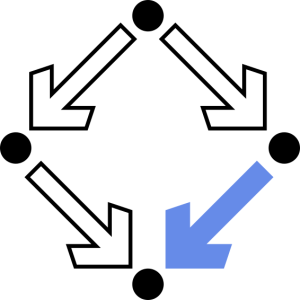This course aims to build a greater knowledge in several aspects of rewriting by practicing the theoretical content of the main lecture in many exercises.
- Lecturer: Cleopatra Pau
This course deals with the formal modeling of concurrent systems such as
parallel or multi-threaded programs, distributed hardware and software
systems, mobile systems, etc.
- Lecturer: Wolfgang Schreiner
This course presents the major methods for defining the meaning of
languages and programs (operational semantics, denotational semantics, axiomatic
semantics) and discusses their relationship.
- Lecturer: Wolfgang Schreiner
- Lecturer: Cleopatra Pau
In this course we discuss (as a continuation of the course "Programming 1") object-oriented programming in C++.
- Lecturer: Wolfgang Schreiner
This seminar discusses techniques and tools for formal methods and/or
automated reasoning such as formal specification languages, program
verification systems, model checkers, interactive proof assistants,
automated theorem provers, satisfiability solvers, decision procedures,
etc.
- Lecturer: Temur Kutsia
- Lecturer: Wolfgang Schreiner
- Lecturer: Wolfgang Windsteiger
